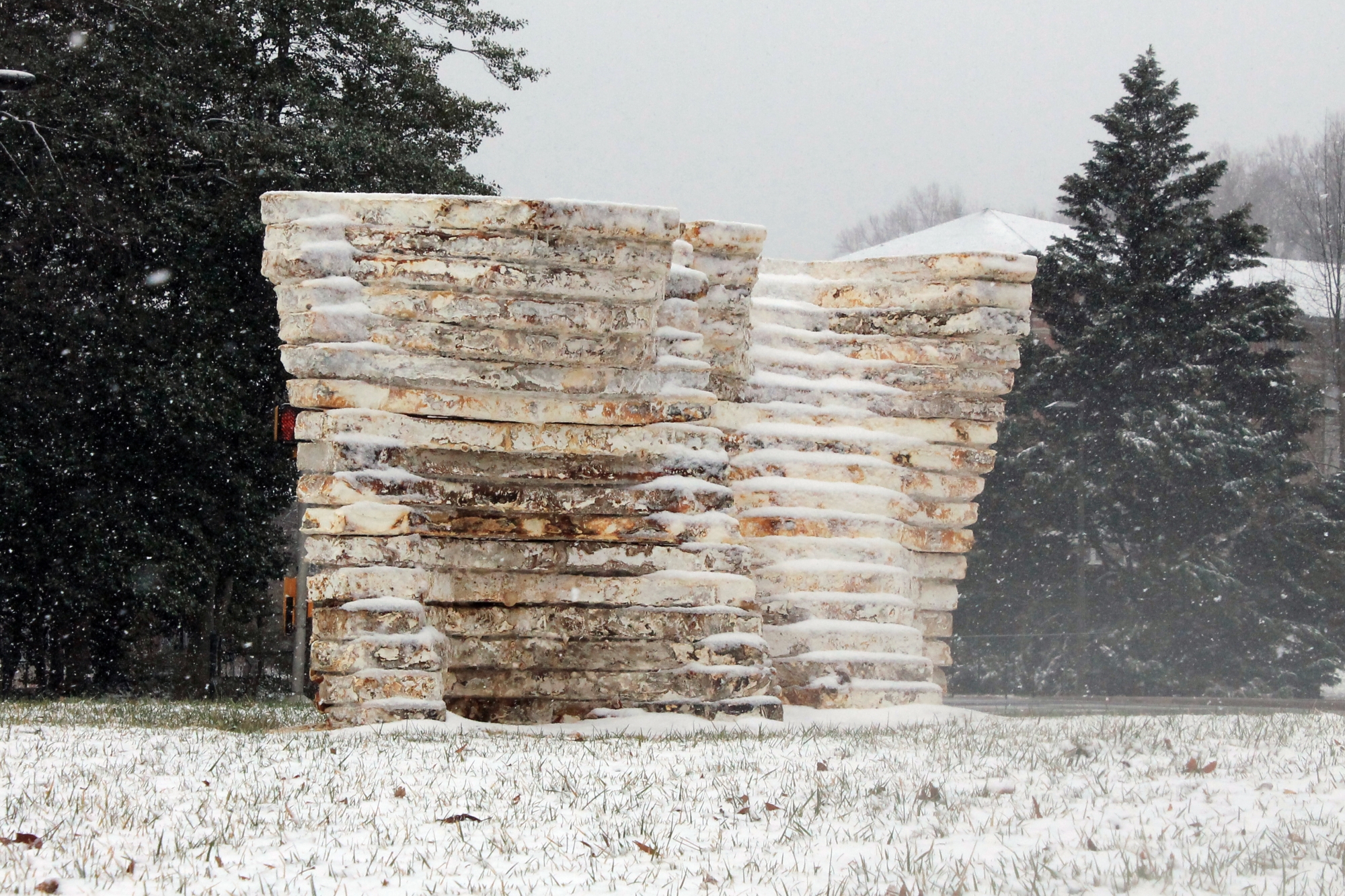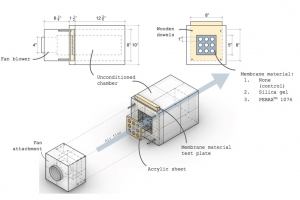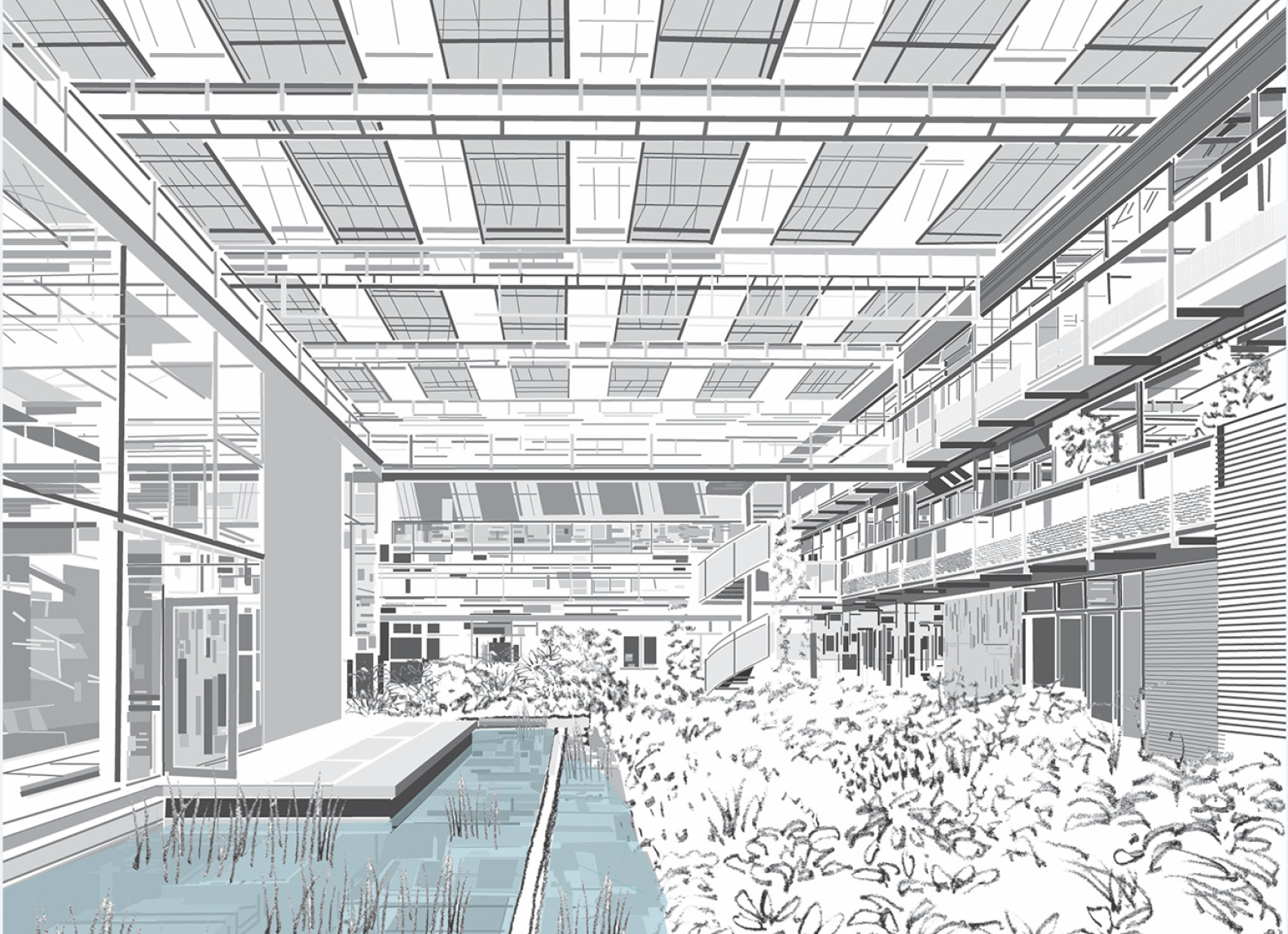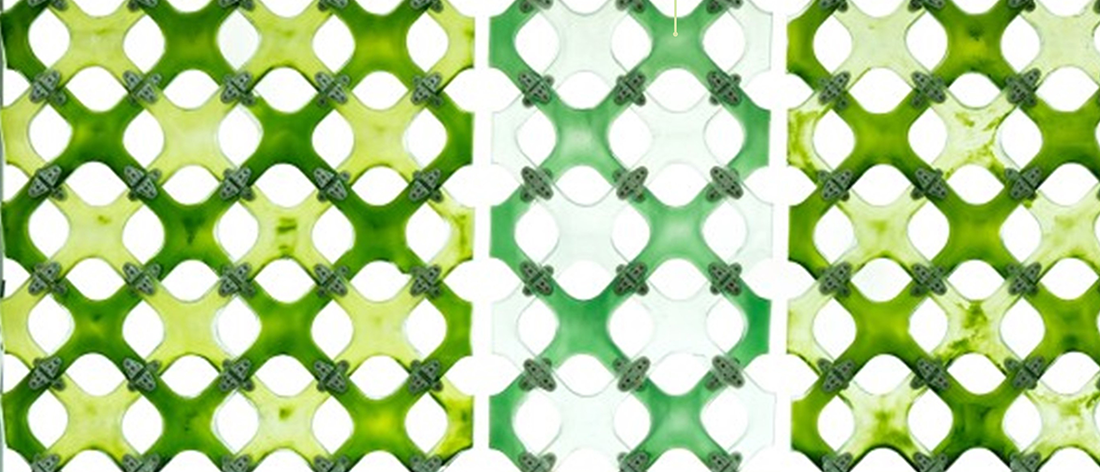
Regenerative Systems Design consists of biologically attuned methods, substances, and assemblies that expand building construction’s standard material palette and increases the environmental performance of architecture. This focus is evident in the work of the School’s Integrated Design Research Lab (IDRL), which advances research in climate-responsive strategies that also improve human health. Courses like Environmental Systems Principles, Building Systems Integration, and Environmental Ethics broaden students’ expertise in this topic. Students may also pursue in-depth studies as part of the M.S. in Architecture—Design Science degree.
Regenerative System design | EXAMPLES
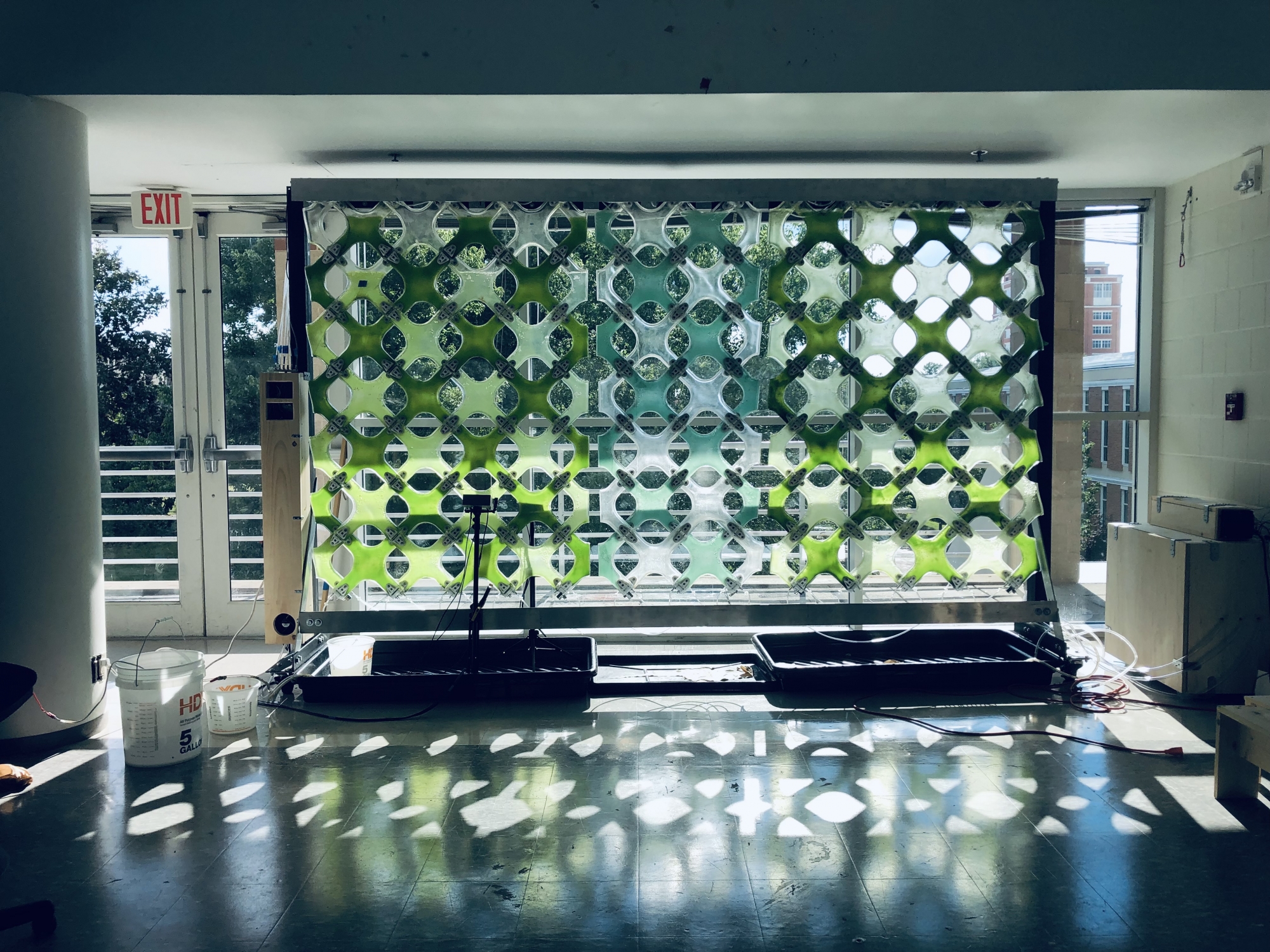
Microalgae Building Enclosures
R+D Award: Toward Carbon Neutrality - High-Performance Biochromic Window. A microalgae window system by Kyoung Hee Kim and the IDRL checks both boxes while cultivating a renewable energy source and supporting occupant wellness through improved air quality as well as thermal and visual comfort.
Read more →
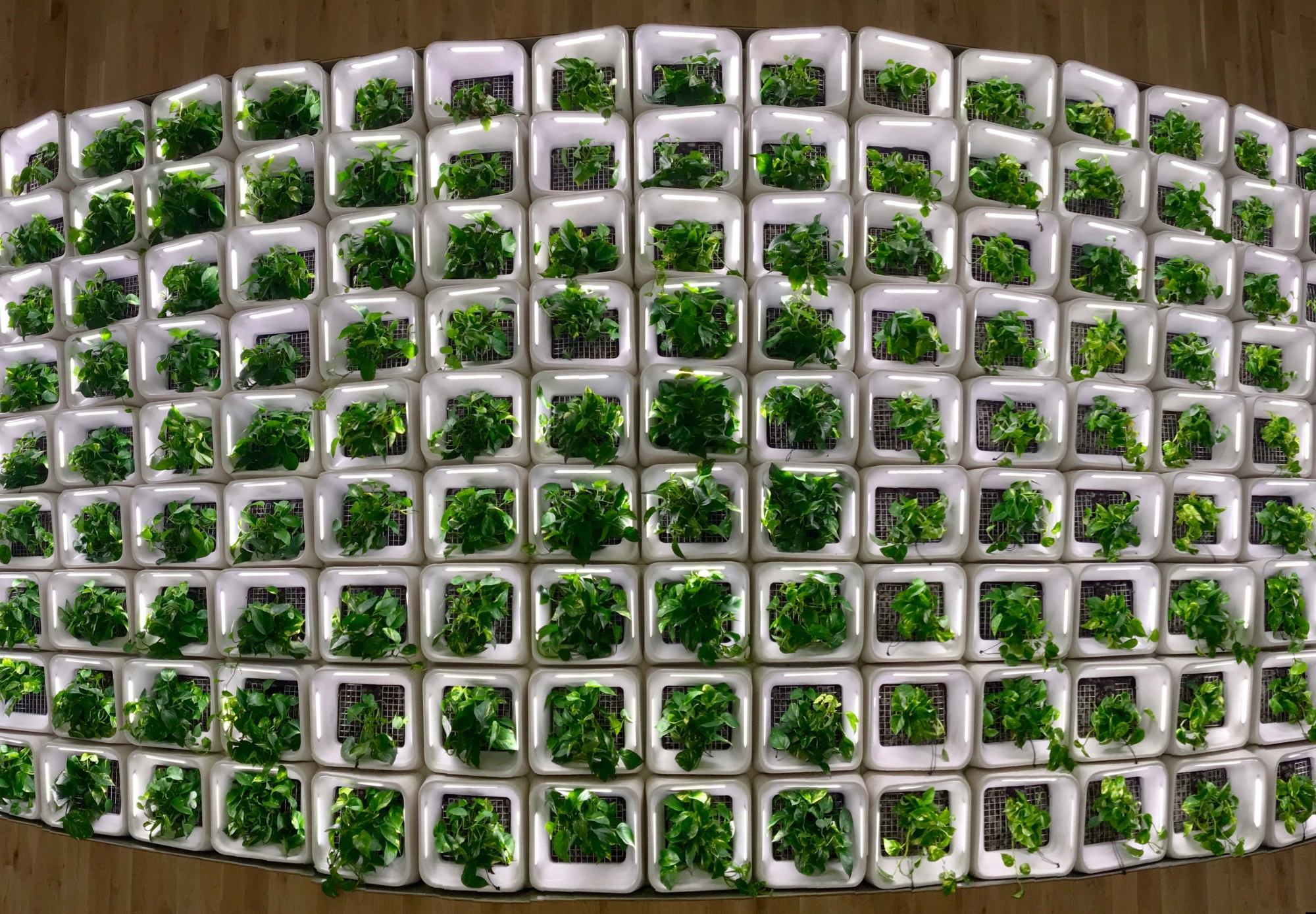
AMPS (Phytoremediation System)
With his partners at Fresh Air Building Systems, Jefferson Ellinger installed the first active modular phytoremediation system (AMPS)—basically, a “probiotic” plant wall connected to the HVAC system—in the Bronx. The result is cleaner air and less energy use.
Read more →
Strategies for Growing Large-Scale Mycelium Structures.
Fungi-based materials (myco-materials) have been celebrated and experimented with for their architectural and structural potential for over a decade. Jonathan Dessi-Olive's paper describes research applied to assembly strategies for growing large building units and assembling them into efficiently formed wall prototypes.
Read more →
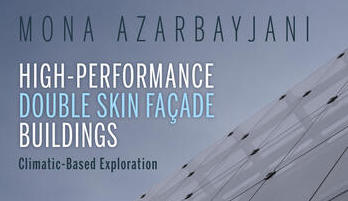
High-Performance Double Skin Facade Buildings
Mona Azarbayjani's book provides a comprehensive theoretical platform for the use and construction of double skin façade projects. The DSF concept has been used mostly in European buildings; however, its success in other climates should be addressed.
Read more →
Buell Center Cource Development Prize
Liz McCormick has received a 2021 Buell Center Course Development Prize in Architecture, Climate Change, and Society for her class "High-Performance, Low-Tech." The prize recognizes coursework that focuses on the intersections of climate, infrastructure, and architecture.
Read more →
Blue Architecture
When it comes to water, the architectural design community is working at a level of sophistication and innovation that is about a generation behind where they are with energy. Brook Muller's new book seeks to address that lag through a close look at a series of cases, mostly in the American West.
Read more →
